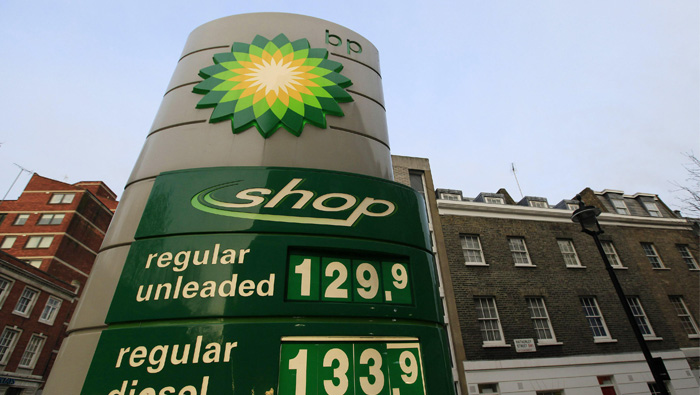
London: BP, the first oil major to report second-quarter results, said earnings fell 45 per cent as lower crude prices continued to erode income and refining margins shrank.
Profit adjusted for one-time items and inventory changes dropped to $720 million from $1.3 billion a year earlier, the company said Tuesday. That missed the $819 million average estimate of 13 analysts surveyed. Downstream earnings, which include refining, declined 19 per cent.
Refining margins were the lowest for the second quarter since 2010 and will continue to be under “significant pressure,” BP said. Although Brent crude’s rebound provided some relief compared with the first quarter, chief executive officer Bob Dudley still faces a difficult road ahead as the rally fades amid slowing demand growth and returning production from Canada to Nigeria. BP’s results are likely to be an indication of how the other oil majors will perform.
Brent averaged $47.03 a barrel in the quarter compared with $63.50 a barrel a year earlier and $35.21 a barrel in the first quarter of this year. The decline that began in mid-2014 forced explorers to delay projects, cut billions of dollars of spending and eliminate thousands of jobs.
Spending outlook
BP invested just $8.1 billion in the first half, allowing it to tweak its spending forecast for the year to less than $17 billion from “about” $17 billion, according to a statement. As well as cutting expenditure, Dudley is taking on more debt so he can continue to pay dividends, the company’s top financial priority.
At the end of the second quarter, net debt totaled $30.9 billion, up from $24.8 billion a year earlier. Net debt to capital, also called gearing, was at 24.7 percent, compared to 18.8 percent previously, according to the statement. The company announced a quarterly dividend of 10 cents a share.
Cost-cutting means BP will be able to balance cash flow with shareholder payouts and capital spending at an oil price of $50 to $55 a barrel next year, the company said. Benchmark Brent is currently trading below $45 a barrel in London.
Stock performance
BP’s shares have risen 24 per cent in London this year following two years of declines. That compares to a 36 per cent gain at Royal Dutch Shell and a 2.4 per cent increase for Total.
Production for the second quarter was 2.09 million barrels of oil equivalent a day, 1 per cent lower than a year earlier. Third-quarter output will continue to fall because of maintenance and the impact of a plant shutdown at a gas plant in the Gulf of Mexico, BP said.
Downstream earnings fell to $1.51 billion from $1.87 billion. While oil’s lows had previously boosted income for BP’s refineries as they benefit from cheaper crude, margins have been contracting. Global refining margins averaged $13.80 a barrel in the quarter through June, and have dropped to $10.70 a barrel this month, according to the company’s website.
At the same time, the rebound in crude prices is petering out. Production shuttered by wildfires in Canada and by militant attacks in Nigeria is returning and shale drillers in the U.S. are bringing back some rigs. While there’s still consensus that the worst of the oil glut is over, the International Energy Agency cautioned this month that “the road ahead is far from smooth.”
Shell and Total are scheduled to publish earnings on Thursday, and Exxon Mobil and Chevron the following day.